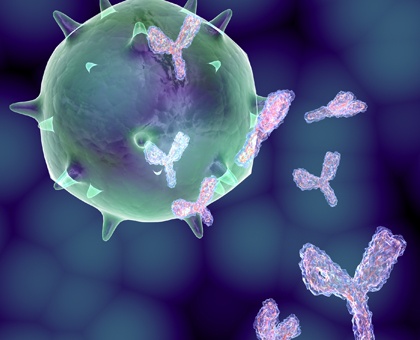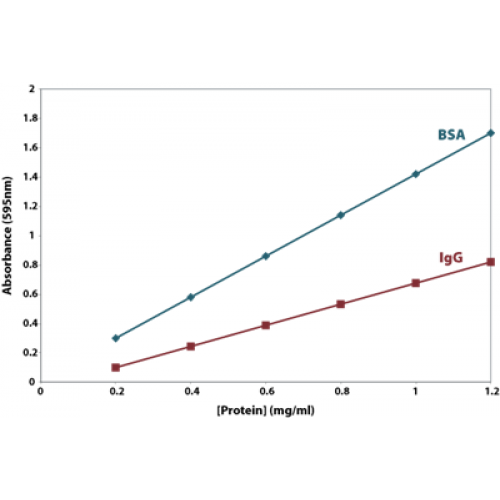 Monoclonal antibodies are often marketed as being superior to polyclonal antibodies. While this might be the case in many applications, this is not necessarily always true. In order to understand what type of antibody is best suited for a particular application, one needs to understand how they are generated.
Monoclonal antibodies are often marketed as being superior to polyclonal antibodies. While this might be the case in many applications, this is not necessarily always true. In order to understand what type of antibody is best suited for a particular application, one needs to understand how they are generated.
The first step in generating an antibody always begins with the immunization of an animal (alternatively, avian eggs can also be used) against a target antigen. This is usually done by injecting the target protein (or a fragment) along with an immune response enhancer. B-cells then bind to the foreign protein and divide to form a group of identical antibody-producing mature B-cells known as a clone. Since many B-cells will bind the target antibody in different epitopes and generate different clones that generate a variety of different antibodies against the same protein; the serum obtained from these animals is referred to as polyclonal antibody serum.
Alternatively, hybridoma cells can be generated from the spleen of an immunized animal. Each of these cells will express an antibody against a target antigen (not necessarily of interest). Single colonies are then screened to identify an antibody of interest before finally freezing and expanding the cell line. Antibodies obtained in this manner from a single clone are what we know as monoclonal antibodies. While generating a monoclonal antibody is more involved and tedious at first, hybridoma cells are immortalized so they can be expanded and passaged almost indefinitely. This means that the cost of a monoclonal antibody is actually much lower in the long run.
Antibodies are used in many different applications. Obviously, they all involve the detection of a specific protein. However, monoclonal and polyclonal Antibodies each have their own advantages over each other. Monoclonal antibodies have a great advantage in applications where consistency and reproducibility is important, such as clinical diagnostic assays. This can be attributed to our ability to mass produce the antibody with minimal risk of variability between lots as well as relatively low cost. Another great advantage that can be very useful in certain applications is the fact that with monoclonal antibodies, one can know exactly what epitope of a protein an antibody will bind. This facilitates selection of antibodies that target more conserved, often functional epitopes.
Polyclonal antibodies are becoming somewhat underrated when it comes to research applications. This might be in part due to researchers associating them with higher background levels. While it is true that the diversity antibodies present in polyclonal antibody serum can lead to higher background, this is not always the case. Especially in an assay such as Western blots, where proteins are already separated by size so the antibody is unlikely to unspecifically bind in an area close to a protein of interest.
Another obvious advantage that polyclonal antibodies have in the research world is low initial cost of development. While a monoclonal might be cheaper to produce in mass scale, generating polyclonal antibody serum only costs a fraction of the cost of developing a monoclonal antibody (it can be done within a couple of months). This makes it a far better method for making antibodies against obscure proteins that only a limited number of scientists are interested in.
However, there are other functional advantages to polyclonal antibodies that go beyond cost. Epitope polymorphism is naturally found across various epitopes of many proteins throughout many species. While a monoclonal antibody might have problems recognizing different variants of a protein if the targeted epitope was altered, a polyclonal antibody would still be able to recognize the protein through a different epitope. This can sometimes become useful when studying high-passage cell lines or cell lines with increased genomic instability. So, next time you think your protein of interest does not exist in some cancer cell line, you might want to try a polyclonal antibody.
Another advantage of polyclonal antibodies is that they tend to be a little more flexible in terms of the conditions they can function in. Experimental conditions such as temperature, high or low salt concentration, and even the presence of mild detergents can alter the structure of proteins. This means that certain epitopes may be masked or harder to access, and sometimes the functionality of the antibody itself may be compromised due to its structure. Since polyclonal antibodies rely on a broad variety of antibodies that recognize many epitopes, the chances of none of them working under certain conditions are lower.






